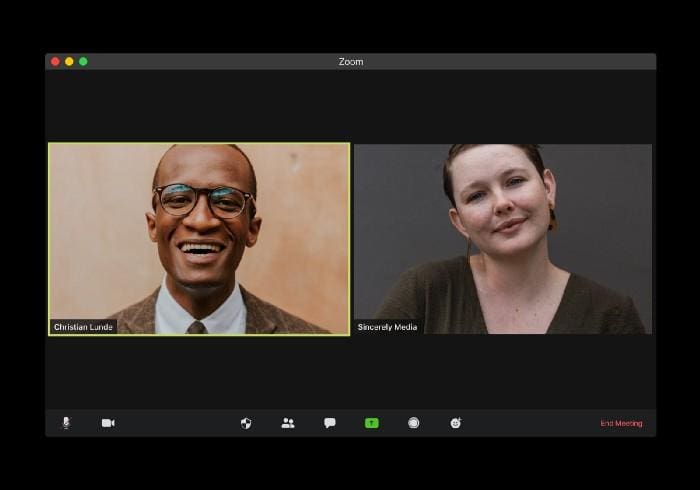6 Soft Skills for Data Scientists Working Remotely
As a data scientist, you might have a great portfolio of technical skills, but if you can’t communicate effectively, you won’t be able to convey your ideas clearly during virtual meetings

Photo by visuals on Unsplash
Key Takeaways
- With remote work becoming the norm, communication skills are crucial in data science
- As a data scientist, you might have a great portfolio of technical skills, but if you can’t communicate effectively, you won’t be able to convey your ideas clearly during virtual meetings.
- It is therefore crucial that strong technical skills be combined with communication savviness, especially in today’s virtual world.
The pandemic has brought about unprecedented changes in the way companies conduct business. Several companies are now allowing employees to work remotely. Whether you are a seasoned data scientist or a data science aspirant still trying to get into the field, there are essential soft skills for remote work that you have to develop in addition to your hardcore technical skills. Strengthening your communication skills (including writing, speaking, and active listening) is extremely important.
In this article, we consider 6 essential soft skills for today’s virtual world.
1. Speaking Skills
The ability to articulate your ideas during a virtual meeting is a great skill that will make you stand out. Generally, industrial data science projects are very broad in scope and complexity, and also very multidisciplinary in nature, involving individuals with expertise in different areas. Strong speaking skills will enable you to convey your ideas clearly to members in your team. Without being able to articulate clearly, you won’t be able to function well as a team player. If you are a data science aspirant still looking into getting into the field of data science, then good speaking skills will help you to express your ideas clearly during the zoom interview process. Your ability to demonstrate both technical acumen and communication savviness will likely give you an advantage over candidates who can’t articulate their ideas clearly.
2. Writing Skills
Writing skills play a crucial role in data science. Suppose your team has successfully completed a project. Now is the time to prepare a project report. Good writing skills will help you to present the findings from your project in a clear and concise manner. You want to use this opportunity to make a strong case that the findings from your project are important and if implemented, could improve the way business is being conducted. You want to convince executives and managers how you arrived at your solution in a way that is not too technical. With remote work, email use has skyrocketed. Good writing skills are helpful when you compose emails to send to business executives or other members of your team. You want to make sure to write high-quality emails that are professional and error-free. As a data science aspirant, writing skills will enable you to compose a great follow-up email after the interview process.
3. Listening Skills
Listening skills are as important as speaking and writing skills. Listening carefully during virtual zoom meetings with members of your team is very essential. If possible, take down detailed notes of key points discussed during business meetings. Even if you are the lead data scientist, you don’t want to dominate the meeting with talking. You have to listen carefully to your team members as they often contribute valuable ideas on how to tackle and solve problems. As a data science aspirant, you have to listen carefully during the interview process to make sure you understand all the details about the company and what your role would be. This would enable you to determine if the company is a good fit.
4. Reading Skills
Good reading skills will help you to keep up to date with business operations in your organization. As a lifelong learner, good reading skills will also help you to stay current with new developments in the field. Some blogging platforms that can help you stay current include Medium, LinkedIn, GitHub, KDnuggets, and Kaggle.
5. Professionalism in Appearance
Presenting a professional appearance is important not only during the job-seeking and interview process — it’s something that should be carried over into your everyday life as a career professional. The way you dress is a reflection of how you view your work and how others see you and your company. Good business attire will ensure that you always project the appropriate image. It is not a good idea to attend important business meetings in casual attire such as pajamas. Also, if attending a zoom meeting, make sure you are in an area that is quiet with limited distractions. How does your zoom background look like? Using a background that ensures you are not a distraction to others is certainly helpful.
6. Ethical Skills
Working remotely as a data scientist or in any other role requires a lot of self-discipline. Be ethical and truthful to yourself. Set aside time to do your work. Make sure you are putting the right amount of time each day. Find a workplace that is free from distractions.
In summary, we’ve discussed 6 essential soft skills for remote work as a data scientist. As a data scientist, you might have a great portfolio of technical skills, but if you can’t communicate effectively, you won’t be able to convey your ideas clearly during virtual meetings. It is therefore crucial that strong technical skills be combined with communication savviness, especially in today’s virtual world.
Benjamin O. Tayo is a Physicist, Data Science Educator, and Writer, as well as the Owner of DataScienceHub. Previously, Benjamin was teaching Engineering and Physics at U. of Central Oklahoma, Grand Canyon U., and Pittsburgh State U.
